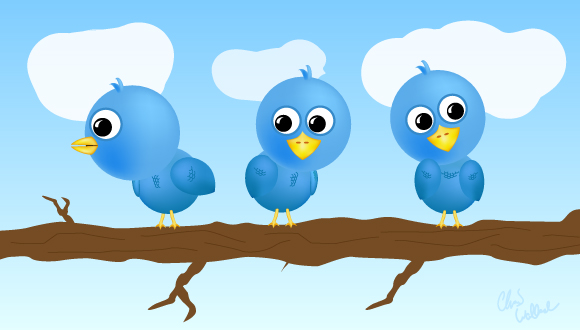I heard an interesting story on NPR during my evening commute. The reporter posits:
"Social networks such as Facebook and Twitter are helping people keep in touch with friends and family. But just how social are those networks? Are Internet communities simply "real-world" cliques moved online?"
 Quite honestly, I never pondered that Facebook was anything more than a digital clique. Looking at my own cadre of friends on Facebook, I saw some interesting patterns. I have 653 friends. [Yes. I know. Those of you with more friends are thinking, "Oh how sad." and those of you with fewer friends are just jealous. It's all relative.] For point of information, the average Facebook user has about 125 friends. I appear to be ahead of the curve.
Quite honestly, I never pondered that Facebook was anything more than a digital clique. Looking at my own cadre of friends on Facebook, I saw some interesting patterns. I have 653 friends. [Yes. I know. Those of you with more friends are thinking, "Oh how sad." and those of you with fewer friends are just jealous. It's all relative.] For point of information, the average Facebook user has about 125 friends. I appear to be ahead of the curve.
The NPR story maintains that Facebook's software is designed so that our "Top News" shows items that we are more likely to agree with or comment on so we will tend to see news from our friends who are most like us. If we don't comment on it or click on it, Facebook, in turn, pushes the information (and future information from the same friend) off of our radar. I suppose there is some truth to this. As I look over my list of friends, I am amazed at how many of them show up so rarely in my News Feed. Maybe they're just not as addicted to Facebook as I am.
I do disagree with the diversity issue, though. I have friends who are straight, gay, single, married, and divorced. I have friends in their teens and friends in their 60s. My news feed is frequently filled with posts by those more liberal than me (yes, it's possible) as well as those so conservative they make Dick Cheney look like a tree-hugger. I must admit, though, that my list of friends is very....oh....how shall we say...white. I'll have to work on that.

If the issue is diversity, it seems that Twitter might be the answer. According to the article, Twitter's public format creates a more diverse forum than the private profiles of Facebook, leading to more frank and honest discussions with a greater variety of strangers brought together by common causes as varied as political issues, TV shows, and favorite shopping venues. I have yet to jump on the Twitter bandwagon but maybe this was the information I needed to push me over the edge.
I don't want to be perceived as anti-social.
"Social networks such as Facebook and Twitter are helping people keep in touch with friends and family. But just how social are those networks? Are Internet communities simply "real-world" cliques moved online?"
 Quite honestly, I never pondered that Facebook was anything more than a digital clique. Looking at my own cadre of friends on Facebook, I saw some interesting patterns. I have 653 friends. [Yes. I know. Those of you with more friends are thinking, "Oh how sad." and those of you with fewer friends are just jealous. It's all relative.] For point of information, the average Facebook user has about 125 friends. I appear to be ahead of the curve.
Quite honestly, I never pondered that Facebook was anything more than a digital clique. Looking at my own cadre of friends on Facebook, I saw some interesting patterns. I have 653 friends. [Yes. I know. Those of you with more friends are thinking, "Oh how sad." and those of you with fewer friends are just jealous. It's all relative.] For point of information, the average Facebook user has about 125 friends. I appear to be ahead of the curve. After my dear husband (453 mutual friends), the person with whom I share the most mutual friends is a girl that went to my high school. We have 53 mutual friends. Interestingly, we were not the best of friends back in high school. I was too nerdy for her. Either I've become much hipper after all these years or she's mellowed with age.
I do disagree with the diversity issue, though. I have friends who are straight, gay, single, married, and divorced. I have friends in their teens and friends in their 60s. My news feed is frequently filled with posts by those more liberal than me (yes, it's possible) as well as those so conservative they make Dick Cheney look like a tree-hugger. I must admit, though, that my list of friends is very....oh....how shall we say...white. I'll have to work on that.
If the issue is diversity, it seems that Twitter might be the answer. According to the article, Twitter's public format creates a more diverse forum than the private profiles of Facebook, leading to more frank and honest discussions with a greater variety of strangers brought together by common causes as varied as political issues, TV shows, and favorite shopping venues. I have yet to jump on the Twitter bandwagon but maybe this was the information I needed to push me over the edge.
I don't want to be perceived as anti-social.